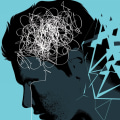Mental health is an important topic that affects us all. It is essential to understand the different types of mental health disorders and how they can affect our lives. On this page, we will explore five of the most common mental health disorders: anxiety disorders, behavioral and emotional disorders in children, bipolar affective disorder, depression, dissociative and dissociative disorders, eating disorders, obsessive-compulsive disorder, and paranoia. Mental disorders are patterns of behavioral or psychological symptoms that affect multiple areas of life.
These disorders cause distress to the person experiencing the symptoms. Mental disorders (or mental illnesses) can be occasional or long-term (chronic). They can affect your ability to relate to others and to function every day. The details of each mental illness are found in the DSM-5, which health care providers and mental health professionals use to diagnose a mental health problem.
Mood disorders encompass a variety of depressive and bipolar disorders. While we all feel sad or depressed from time to time, a mood disorder is different. Mood disorders are very intense and persistent, significantly affecting everyday life. Personality disorders are characterized by long-term maladaptive thought and behavior patterns that can make it difficult to start or maintain relationships, as well as to manage daily stress in both personal and work life.
Anxiety Disorders
Anxiety disorders are characterized by feelings of fear, worry, and unease that are strong enough to interfere with daily activities. Anxiety can manifest itself in physical symptoms such as sweating, trembling, and difficulty breathing.Common anxiety disorders include generalized anxiety disorder (GAD), panic disorder, social anxiety disorder (SAD), and specific phobias.
Behavioral and Emotional Disorders in Children
Behavioral and emotional disorders in children can manifest themselves in a variety of ways. These include difficulty controlling emotions, difficulty following directions, difficulty making friends, difficulty paying attention, and difficulty regulating behavior. Common behavioral and emotional disorders in children include attention-deficit/hyperactivity disorder (ADHD), oppositional defiant disorder (ODD), conduct disorder (CD), autism spectrum disorder (ASD), and Tourette syndrome.Bipolar Affective Disorder
Bipolar affective disorder is a mental illness characterized by extreme shifts in mood from mania to depression. People with bipolar disorder experience periods of extreme highs (mania) followed by periods of extreme lows (depression).Symptoms of mania include increased energy, decreased need for sleep, racing thoughts, irritability, impulsivity, and grandiose thinking. Symptoms of depression include feelings of sadness or emptiness, loss of interest in activities once enjoyed, fatigue, difficulty concentrating, changes in appetite or weight, and thoughts of death or suicide.
Depression
Depression is a mental illness characterized by persistent feelings of sadness or emptiness. It can also cause physical symptoms such as changes in appetite or weight, fatigue, difficulty concentrating, and thoughts of death or suicide. Depression can be caused by a variety of factors including genetics, brain chemistry, environmental factors, substance use, and other mental health issues.Dissociative and Dissociative Disorders
Dissociative and dissociative disorders are characterized by disruptions in memory or identity. Common dissociative disorders include dissociative identity disorder (DID), depersonalization disorder (DPD), dissociative amnesia (DA), and dissociative fugue (DF). Symptoms of these disorders include memory loss or gaps in memory; feeling disconnected from one's body; feeling like one is living in a dream; feeling like one is watching oneself from outside the body; feeling like one is not real; feeling like one is living someone else's life; feeling like one has multiple personalities; and feeling like one has lost control over one's actions.Eating Disorders
Eating disorders are characterized by obsessive concerns about weight and disturbing eating patterns that adversely affect physical and mental health.Common eating disorders include anorexia nervosa (AN), bulimia nervosa (BN), binge eating disorder (BED), avoidant/restrictive food intake disorder (ARFID), pica, rumination disorder (RD), night eating syndrome (NES), and other specified feeding or eating disorder (OSFED). Symptoms of eating disorders include extreme restriction of food intake; bingeing on large amounts of food; purging after eating; preoccupation with body shape or weight; fear of gaining weight; distorted body image; compulsive exercising; using diet pills or laxatives; hoarding food; hiding food; avoiding social situations involving food; feeling out of control around food; feeling guilty after eating; and feeling ashamed about one's body.
Obsessive-Compulsive Disorder
Obsessive-compulsive disorder (OCD) is a mental illness characterized by intrusive thoughts that cause distress or anxiety as well as repetitive behaviors that are intended to reduce the distress caused by the intrusive thoughts. Common obsessions include fear of contamination or germs; fear of harm coming to oneself or others; fear of making mistakes; fear of losing control; fear of being judged negatively by others; fear of being embarrassed; fear of being wrong; fear of being responsible for something bad happening; fear of being responsible for something bad not happening; fear of being responsible for something bad happening to someone else; fear of being responsible for something bad not happening to someone else.Paranoia
Paranoia is a mental illness characterized by irrational beliefs that one is being persecuted or targeted by others. People with paranoia may also experience delusions such as believing that they have special powers or abilities or that they are being watched or followed by others. Paranoia can be caused by a variety of factors including genetics, brain chemistry, environmental factors, substance use, and other mental health issues. Sometimes it may be necessary to see more than one health care provider to make a formal diagnosis.Recovery can be customized specifically for you based on your disorder, other mental health issues you may be dealing with, your environment, your financial situation, and even your family history. If you or a loved one has problems with thoughts, behaviors, or emotional distress related to mental illness it is important to seek help from a qualified mental health professional who can provide an accurate diagnosis using the DSM-5 criteria. It is also important to remember that recovery from mental illness is possible with the right treatment plan tailored specifically for you. Presented by editor-in-chief and therapist Amy Morin LCSW this episode of The Verywell Mind podcast with GRAMMY-winning singer JoJo shares the benefits of antidepressants and how to manage mental health.
We hope that by knowing more about the types of mental illnesses and having resources to learn more about them you will feel better able to go to a mental health professional support group or friend for help.
Conclusion
. Mental illness can be caused by factors that are beyond your control but learning more about it doesn't have to be. Mental illness is generally diagnosed by a mental health professional who uses the DSM-5 criteria to assess whether a person meets the criteria for a particular mental illness.It is important to remember that recovery from mental illness is possible with the right treatment plan tailored specifically for you. We hope this article has helped you understand more about five common types of mental illnesses: anxiety disorders behavioral and emotional disorders in children bipolar affective disorder depression dissociative and dissociative disorders eating disorders obsessive-compulsive disorder paranoia. If you think you may have any type of mental illness it is important to seek help from a qualified mental health professional who can provide an accurate diagnosis using the DSM-5 criteria.







